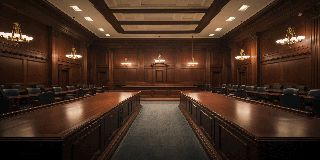The SFO, s.179 provides the SFC with the power to obtain documents and records from companies listed on the Stock Exchange of Hong Kong. Typically, it is used by the SFC Corporate Finance Division as part of its role of regulating listed companies rather than by the SFC Enforcement Division as part of its role of investigating misconduct. Nevertheless, s. 179 enquiries do focus on possible misconduct, including possible breaches of the listing rules and director duties, and the SFC Corporate Finance Division may refer matters which are not addressed to its satisfaction to the SFC Enforcement Division. As a result of this and given the SFC’s heightened focus on corporate misconduct at this time, listed companies receiving s. 179 enquiries should consider how best to pre-empt referrals for enforcement action.
Companies listed on the Stock Exchange of Hong Kong (“SEHK”) are subject to oversight not only by the SEHK but also by the Securities and Futures Commission (“SFC”). Though the SFC has historically yielded the front-line regulatory role to the SEHK, it is now clear that the SFC is re-asserting its long standing statutory role to regulate such listed companies.
Though for political reasons we expect that the SFC will take a gradual approach, the re-emergence of the SFC as a front-line regulator of listed companies means that listed companies are likely to face an increasing number of enquiries from the SFC. These enquiries may take the form of a direction under the Securities and Futures Ordinance (“SFO”), s.179.
Background
Under s. 179, the SFC has power to require a listed company, its affiliates, its bankers and auditors and any other person to produce any record and document where it appears to the SFC that there are circumstances suggesting:
the business of the company has been conducted (i) to defraud creditors, (ii) for any fraudulent or unlawful purpose; or (iii) in a manner oppressive to its shareholders;
the company was formed for any fraudulent or unlawful purpose;
persons involved in the company’s listing have engaged, in relation to the listing, in defalcation, fraud, misfeasance or other misconduct;
persons who managed the company have engaged in defalcation, fraud, misfeasance or other misconduct towards it or its shareholders; or
shareholders of the company have not been given all the information with respect to its affairs that they might reasonably expect.
The SFC also has power to make copies and record details, and to request an officer of the corporation to provide an explanation or statement in respect of the record or document.
Where the SFC invokes its powers under s. 179, it will authorize members of its staff to exercise the powers under s. 179 and it will issue a direction to produce records and documents under a cover letter.
Sample Cover Letter
A typical cover letter enclosing a s.179 direction will be headed “Section 179 Inquiry – Direction to produce records and documents” and will state as follows:
"The Securities and Futures Commission (the “Commission”) is conducting an inquiry under section 179 of the Securities and Futures Ordinance (the “Ordinance”) into [name of listed company].
At the same time as you receive this letter I will serve you with a direction under section 179 of the Ordinance to produce records and documents."
Sample s. 179 Direction
A typical direction under s.179 will identify the specific ground for the enquiry under s.179 and state as follows:
"It appears to [name of Executive Director], as delegate of the Securities and Futures commission, that there are circumstances suggesting that [identify specific ground].
[Name of Executive Director] has authorized me for the purposes of section 179 of the Securities and Futures Ordinance in relation to the matters set out above.
A copy of my authority is attached to this direction.
I require you to produce to us the following records and documents and to provide an explanation or a statement for the following:"
Practice
The SFC usually issues s.179 notices to make preliminary enquiries in relation to suspected corporate misconduct that may have come to its attention through public complaints, Stock Exchange referrals, or its own surveillance activities. For example, the SFC may issue a s.179 direction where it believes that a listed company may have failed to comply with the SEHK Listing Rules.
An s.179 direction is not per se an investigation preceding potential enforcement action. Indeed, the majority of s.179 notices are issued by the SFC Corporate Finance Division (in which case the cover letter’s reference number will include “CF”) rather than the SFC Enforcement Division (“ENF”). Nevertheless, a listed company and its officers who receive a s.179 direction should take it seriously. The response to a s.179 direction is an opportunity to pre-empt any enforcement action. Failure to manage a s.179 direction may ultimately result in proceedings before the Market Misconduct Tribunal, criminal prosecution or proceedings in court seeking orders to disqualify directors, to require persons to compensate investors for losses incurred or to require a listed company to sue its officers.
Differences in Approach
Generally, the SFC powers of investigation used routinely by the SFC Enforcement Division under the SFO, s.182 are more complete than those under s.179. For example, under s.182, the SFC has the power to require a person to attend an interview to answer questions. Under s. 179, the SFC only has the power to require a person to describe the circumstances in which a document was prepared or created to provide the details of all instructions given or received in connection with a document and to provide an explanation of the reasons for the making of entries contained in (or omission of entries from) the document.
However, in one respect a s.179 is more advantageous for the SFC. The threshold for the SFC to invoke its investigatory powers under s.179 (“where it appears to the SFC that there are circumstances suggesting…”) is lower than the threshold under s.182 (“where the SFC has reasonable cause to believe…”).
Legal Professional Privilege
Where documents are subject to legal professional privilege, provision of those documents to the SFC pursuant to a s.179 notice may amount to a waiver of privilege, at least for the purpose of enabling the SFC to conduct an investigation. However, Hong Kong courts have recognized the concept of limited waiver, meaning a person might waive privilege over certain documents with respect to the SFC, but still assert privilege to prevent the police or the Department of Justice from using those documents in a criminal prosecution. Care should be taken to set out the specific terms of any waiver that a person may wish to give.
Statutory Secrecy
Under the SFO, s. 378, there is a general obligation to keep secret any matter coming to a person’s knowledge in the course of assisting the SFC in the performance of its functions under the SFO. Generally, this prohibits a person from disclosing the fact that the SFC has required the production of certain information under a s.179 direction. There are various exemptions, for example, to permit disclosure for the purpose of seeking advice from a solicitor or other professional adviser.












